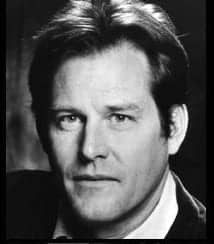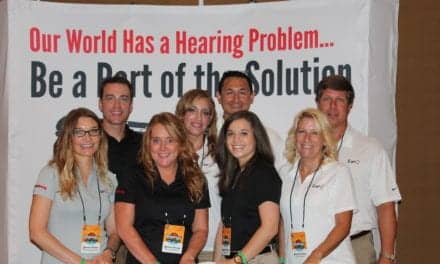Barbara L. Kurman, AuD, is a highly esteemed figure in the audiology industry. Throughout her distinguished career spanning four decades, she has reached remarkable milestones, including being the first female business owner and top sales consultant in the special instrument industry.
Before embarking on her well-deserved retirement, The Hearing Review asked Kurman to reflect on her contributions and profound impact on the audiology profession. Here, she shares insights into her journey, highlighting both her successes and the significant industry transformations she has witnessed along the way.
Choosing a Career in Audiology
I didn’t know at first that I wanted to enter the field of audiology. I started in college as a speech and hearing undergraduate. There were no audiology programs per se. There were just one or two courses. I was also an education major and a music minor. The speech pathology part of it, although interesting, only partially captured my interest. The only thing I really liked was voice disorders, but that wasn’t enough to become a speech pathologist. Audiology, on the other hand, encompassed aspects of hearing, music, sound, transmission, timing, discrimination, and the importance of it all.
As a singer and musician, the way sound is absorbed, interpreted, and received was always very important to me. I took a detour before going to graduate school, working as a speech teacher for the hearing handicapped, in public relations, and running a medical practice. But when I got a chance to go to graduate school, I chose audiology, and it has been an exciting and fulfilling career ever since.
My First Jobs in the Industry
After completing my master’s degree program at Syracuse University, I worked as an audiologist for the League for the Hard of Hearing in New York. I then moved on to the private practice otolaryngology group at Montefiore Medical Center in the Bronx, where I eventually became an audiology supervisor overseeing multiple hospital audiology programs. However, due to the distance I had to travel and the lack of communication methods at the time, I decided to explore other opportunities.
I worked for a small instrument distributor for eight years, but it wasn’t fulfilling for me. I later joined a contract rehabilitation company, helping them develop their marketing programs. Eventually, my former colleague and competitor approached me about starting a special instrument distributor company together, and that’s how Joe Quartuccio, Chuck Comitto, and I came to found Northeastern Technologies Group in 1991. Then 10 years later, we founded Midlantic Technologies Group with the addition of Sherman Lord.
Forging My Own Path
Starting my own business as a woman in the early 1990s took work. There were unique challenges and stereotypes to overcome. However, I was fortunate to have built a strong reputation in the industry by that time. Being part of a team with my male partners gave me confidence and a sense of unity. I felt it was essential to be a role model for other women in special instrument sales and to demonstrate that we could succeed in a male-dominated field.
I worked hard to ensure that my knowledge, research, and education backed up everything I said. I wanted to be taken seriously and make a positive impact, both for audiologists and for women in business. When it became possible to obtain my AuD through what is now Salus University, I enrolled and received my degree in 2002.
Seizing the Opportunity for Expansion
After spending years building up our business, we saw an opportunity for expansion. It was an exciting time. Both Northeastern Technologies Group and Midlantic Technologies Group were among the first companies that became part of what is now e3 Diagnostics. We were acquired by Demant in 2011, and since then, e3 Diagnostics has grown into a national network of companies providing excellent service, support, and sales for professionals in the hearing and balance industry.
The decision to merge and be acquired by Demant was driven by several factors. At the time, we saw a changing landscape in the industry, with manufacturers going their own ways. We wanted to align ourselves with companies we believed had a promising future, leading us to Interacoustics, GSI, and MAICO. Demant approached us with the idea, and we saw it as an opportunity to join forces and create a global powerhouse in audiology. It was a pivotal moment for us, and we believed that this new business opportunity would benefit both our companies and the customers we served.
Looking Back Fondly
I consider myself incredibly fortunate to have had the privilege of collaborating with exceptional individuals in my field throughout my professional journey. From esteemed researchers and educators to influential figures in the industry, I have been surrounded by a wealth of expertise and wisdom that has profoundly shaped my knowledge and skills.
My recommendations to my customers regarding equipment and solutions were always driven by a commitment to providing user-friendly options that enhanced patient care. Mentorship has also played a vital role in my career, and I have dedicated myself to giving back to the profession.
I was the first two-year president of the National Association of Special Equipment Distributors (NASED); I was very proud of our accomplishments because we did an excellent job coalescing the service side of our business so that the industry had standards we could use when speaking with our customers. I served on the Board of Governors for the Board of Audiology of the American Academy of Audiology. I have worked in, presented, and organized multiple state and local e-audiology conferences. I am so grateful to the people who assisted me along the way and proud of my contributions to the industry.
A View Toward the Future
As I transition into a new stage of life after spending such a long time in this field, I find myself thinking about what the future holds for this industry. In the next five years, I believe it is crucial for audiology to unify and strengthen its message to the general public. We must emphasize our role in providing personalized audibility and enhancing the lives of people with hearing and balance disorders. There has been increased awareness of hearing loss and less stigma associated with wearing hearing devices. However, we must ensure people understand the value of seeking professional audiology care rather than relying on over-the-counter solutions.
Our profession needs a clear and unified voice to coalesce our purpose and educate the public about the benefits of personalized audiological care. It’s essential that we focus on our unique expertise and the positive impact we can have on people’s lives.
Approaching Retirement
When I announced my plans for retirement, I received a kind offer from Don Williams, the president of e3 Diagnostics, to continue my involvement in a very part-time capacity. This role allows me to maintain my connection to the industry and pass on my knowledge and support by assisting in the onboarding process for new professionals.
While I recognize that my relationships may evolve in retirement, I am content with gradually transitioning into this new phase. Additionally, I have the joy of twin grandsons who recently celebrated their first birthday, and I intend to dedicate as much time as possible to being with them.
Photo: Barbara L. Kurman, AuD






Congratulations Barbara to a truly remarkable career and for all you have done for some many of us along the way!